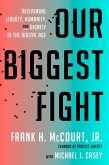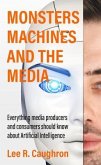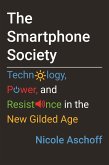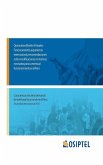"When today's technology relies on yesterday's data, it will simply mirror our past mistakes and biases."
AI and other high-tech tools embed and reinforce America's history of prejudice and exclusion - even when they are used with the best intentions. Patrick K. Lin's Machine See, Machine Do: How Technology Mirrors Bias in Our Criminal Justice System takes a deep and thorough look into the use of technology in the criminal justice system, and investigates the instances of coded bias present at every level.
In this book, you'll learn how algorithms and high-tech tools are used in unexpected ways: suggesting which neighborhoods to police, predicting whether someone is more or less likely to commit a crime, and determining how long someone's prison sentence should be.
Machine See, Machine Do takes you on an eye-opening journey of discovery, encouraging you to think twice about our current system of justice and the technology that supposedly makes it more "objective" and "fair." If you are someone who cares deeply about criminal justice reform, is curious about the role of technology in our day-to-day lives, and ultimately believes we should aspire to make both of these spaces more ethical and safe, this book is for you.
AI and other high-tech tools embed and reinforce America's history of prejudice and exclusion - even when they are used with the best intentions. Patrick K. Lin's Machine See, Machine Do: How Technology Mirrors Bias in Our Criminal Justice System takes a deep and thorough look into the use of technology in the criminal justice system, and investigates the instances of coded bias present at every level.
In this book, you'll learn how algorithms and high-tech tools are used in unexpected ways: suggesting which neighborhoods to police, predicting whether someone is more or less likely to commit a crime, and determining how long someone's prison sentence should be.
Machine See, Machine Do takes you on an eye-opening journey of discovery, encouraging you to think twice about our current system of justice and the technology that supposedly makes it more "objective" and "fair." If you are someone who cares deeply about criminal justice reform, is curious about the role of technology in our day-to-day lives, and ultimately believes we should aspire to make both of these spaces more ethical and safe, this book is for you.
Dieser Download kann aus rechtlichen Gründen nur mit Rechnungsadresse in A, D ausgeliefert werden.









